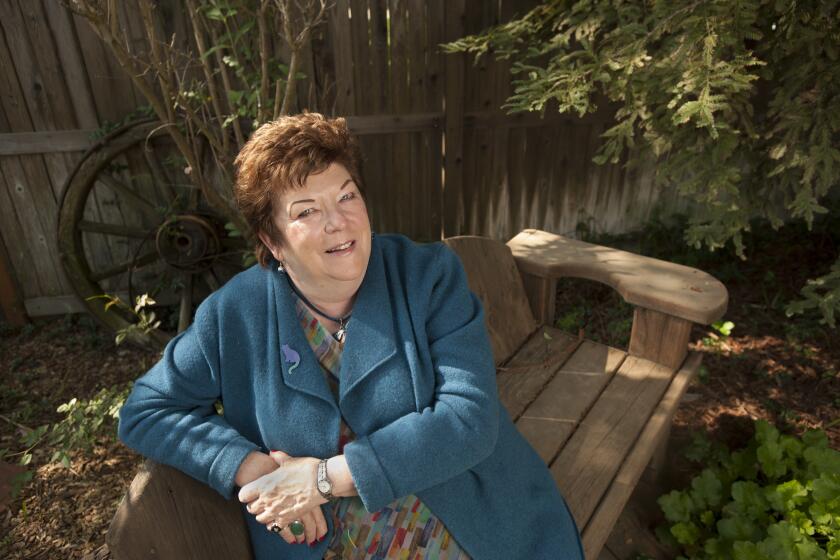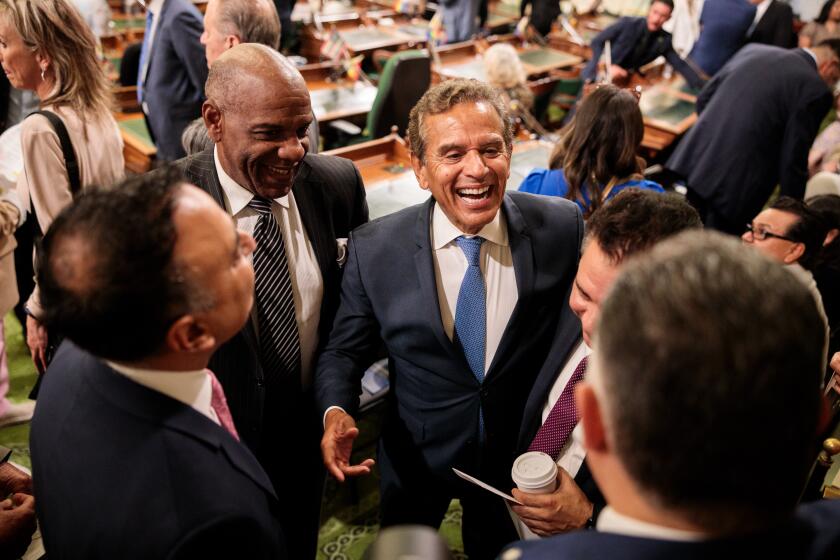Governor Expected to Extend ‘Workfare’ : Bill Rushed to Deukmejian’s Desk After Taking Rocky Legislative Road
San Diego County’s 3-year-old “workfare” experiment--praised, maligned and substantially altered during four months of intense political squabbling--would be extended another two years under a bill rushed to the governor Thursday.
Although liberals have pushed through numerous changes over the objections of Administration spokesmen, county officials were confident Gov. George Deukmejian would sign the extension measure, passed Thursday by both houses of the Legislature.
“We have every assurance from his staff that the governor will sign it,” Assemblywoman Lucy Killea (D-San Diego) said after the final vote.
Without the extension, the state’s only mandatory work requirement for welfare recipients is to end Sunday.
Because Deukmejian and several key Democratic leaders had endorsed the concept, and even talked about extending it into a statewide program, county officials had expected a relatively easy time winning an extension this year.
But it turned out to be anything but easy.
Welfare rights groups, who see the program’s mandatory work requirement as “punitive” and “inhumane,” put up a strong fight to end the San Diego program and resisted any attempt to extend it statewide.
“The chairs of the two major policy committees were against it, so that made it very difficult,” Killea added Thursday.
Killea’s bill was stalled for 12 weeks in the Assembly Committee on Human Services, chaired by Tom Bates (D-Oakland). Another bill by state Sen. Wadie Deddeh (D-San Diego), which was identical to Killea’s when both were introduced March 4, faced similar delays in the Senate Committee on Health and Human Services, chaired by state Sen. Diane Watson (D-Los Angeles).
Both bills faced numerous changes before clearing the initial policy committee hurdles.
At liberal members’ insistence, San Diego County welfare clients in mandatory work assignments will earn the prevailing community wages for similar jobs, not statutory minimums.
The bill that was approved Thursday also:
- Exempts welfare clients enrolled in educational or training programs from the mandatory work requirement.
- Includes provisions for immediate reinstatement of any client who loses benefits for non-participation, once the client cooperates with welfare administrators. Under current rules, the loss of benefits lasts at least three months.
In a major concession to the Deukmejian Administration, however, Killea earlier this week won approval of a last-minute amendment that the educational exemption and the liberalized sanctions will only go into effect once state welfare officials have been assured that the changes will not jeopardize federal funding for any welfare programs.
Killea, who resisted some of the changes insisted upon by liberals and embraced others, had been in a mad race against the clock since Bates’ committee approved her bill three weeks ago.
The day after the June 4 Health Committee vote, she got an emergency hearing for the bill in the Assembly Ways and Means Committee. The following Monday, the bill was passed by the full Assembly, introduced in the Senate and referred to Watson’s committee--all in the same day.
The hectic pace continued through the final legislative vote.
The Senate passed Killea’s bill 36-0, just before a lunch break Thursday afternoon. Then, harried members of the Assembly, who have been meeting in 10- and-11 hour sessions all week to act on bills before statutory deadlines, gave their OK to the Senate changes late Thursday afternoon.
The final vote in the Assembly was 74-1, with only Bates voting against the measure.
Although her bill has passed, Killea said she intends to stay involved in legislative efforts to enact a statewide reform of the welfare system.
More to Read
Get the L.A. Times Politics newsletter
Deeply reported insights into legislation, politics and policy from Sacramento, Washington and beyond. In your inbox three times per week.
You may occasionally receive promotional content from the Los Angeles Times.






